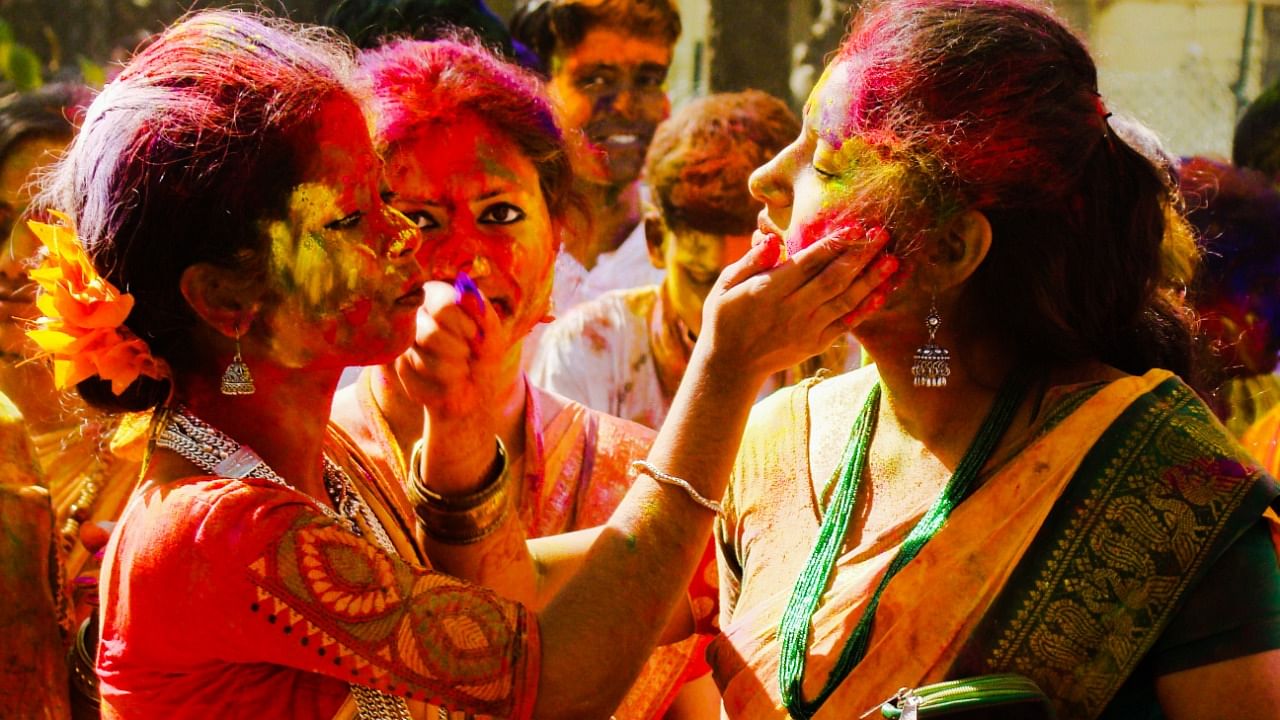

“Ore grihobashi! Khol, dwar khol, laglo je dol. Sthale jale banotale laglo je dol. Dwar khol, dwar khol” (O householder! Open the door for the carnival of colours; the land, water and forest floors are a riot of hues... Open the door).
This Holi song written by Tagore sums up the Basanta Utsav mood at Santiniketan.
The breeding ground of art, culture and dance—Santiniketan in Bengal—is a picture of colour and happiness in spring. With bright palash (flame of the forest) blooms all around and the songs and dances of dol jatra filling the air with melody, the vibrant Visva Bharati campus depicts the truest spirit of the Holi festival.
The festival of colours is celebrated with elegance and fanfare at this famous university town and is an experience of a lifetime.
Santiniketan in Bolpur subdivision of Birbhum district in West Bengal was established by Maharshi Devendranath Tagore and named Santiniketan (the abode of peace). Rabindranath Tagore, his son, came here in 1873 for the first time.
Samindranath, Rabindranath Tagore’s son, had started the “Ritu Utshob” in Santiniketan in January 1907. During Ritu Utshob, the song “Eki Labonnye Purno Praney” was sung for the first time, and the celebrations took place in Adi Kutir. Later with Tagore taking the reign of the festival, it took a different shape with the active participation of Visva Bharati students.
On the day of Dol Purnima, students of Visva Bharati take out a procession in the morning dressed in yellow—the colour of Basant. Later teachers and students apply coloured powder (abeer) on each other.
As you step into Santiniketan,during Basanta Utsav, the faint voices singing “Nil Digantey, Ore Bhai Phagun Legechhe” fill the air from far away as abeer-smeared faces greet each other.
The saffron-clad Bauls—the mystical fakirs of Bengal keep the spirit alive as they sing thought-provoking songs on their “ektara” (single string instrument) that speak of life and faith and love in a distinct style.
It’s great to see the energy of the place as students and teachers bond culturally, making you think how wonderfully the philosophies of Tagore are imbued within every soul here.
(Ayandrali Dutta is a food and travel journalist who finds her Zen exploring different terrains.)
Watch latest videos by DH here: